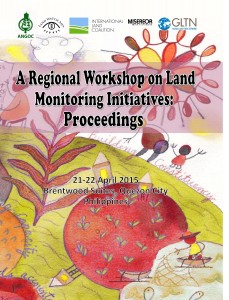Focal point
Location
The Global Land Tool Network (GLTN) is an alliance of global regional and national partners contributing to poverty alleviation through land reform, improved land management and security of tenure particularly through the development and dissemination of pro-poor and gender-sensitive land tools.
Secure land tenure and property rights are fundamental to shelter and livelihoods as well as the realisation of human rights, poverty reduction,economic prosperity and sustainable development.
The Global Land Tool Network (GLTN) main objective therefore is to contribute to poverty alleviation and the Millennium Development Goals through land reform, improved land management and security of tenure.
UN-Habitat through GLTN continues to work towards this with partners who include international civil society organizations, international finance institutions, international research and training institutions, donors and professional bodies.
Most developing countries use conventional land administration systems which cover less than 30 per cent of the country, leaving up to 70 per cent of citizens looking to informal and/ or customary approaches for their tenure security.
While there are many examples of good land policies, there are few policies that have been fully implemented due to lack of pro-poor, gendersensitive and largescale land tools. Further, conventional land titling approaches have largely failed to deliver their expected results since existing technical solutions are too expensive, inappropriate for the range of tenure found in developing countries, unsustainable financially or in terms of available capacity, and instead a range of land tenure options is more appropriate.
Core Values
Consequently, GLTN's core values and principles are founded in the development of land tools that are:
- Pro poor;
- Equitable;
- Sustainable;
- Affordable;
- Systematically large scale /scalable; and,
- Gender-sensitive, while taking into consideration:
- Good governance;
- Subsidiarity; and,
- The Continuum of Land Rights.
GLTN Objectives and Mandate
GLTN has developed a global partnership on land issues pulling together global partners, as well as many individual members. These partners include international networks of civil society, International Finance Institutions, international research and training institutions, donors and professional bodies. It continues to take a more holistic approach to land issues by working towards the following objectives:
- The establishment of a continuum of land rights, rather than just focus on individual land titling
- Improving and developing pro-poor land management, as well as land tenure tools
- Unblocking existing initiatives Assisting in strengthening existing land networks
- Supporting in the development of gendered land tools which are affordable and useful to grassroots
- Improving the general dissemination of knowledge about how to improve security of tenure
- Improving the general knowledge dissemination on the improvement of security of tenure
Resources
Displaying 201 - 205 of 286Regional Learning Workshop on Land and Natural Resources Tenure Security in East and Southern Africa Final Proceedings, 30 June - 2 July 2015, Nairobi, Kenya
This publication is the summary of the proceedings of the Regional Learning Workshop on ‘Land and Natural Resources Tenure Security’ held in Nairobi, Kenya from 30th June -2nd July 2015 as jointly organized by UN-Habitat/Global Land Tool Network and International Fund for Agricultural Development (IFAD).
Regional Learning Workshop on Land and Natural Resources Tenure Security in East and Southern Africa Final Proceedings, 30 June - 2 July 2015, Nairobi, Kenya
This publication is the summary of the proceedings of the Regional Learning Workshop on ‘Land and Natural Resources Tenure Security’ held in Nairobi, Kenya from 30th June -2nd July 2015 as jointly organized by UN-Habitat/Global Land Tool Network and International Fund for Agricultural Development (IFAD).
A Regional Workshop on Land Monitoring Initiatives: Proceedings
This publication contains the major highlights of the Land Watch Asia's "Regional Workshop on Land Monitoring Initiatives: Towards an Accountable Governance on Land" held in Manila, Philippines on 21-22 April 2015. These include the land monitoring country reports (in Bangladesh, Cambodia, India, Indonesia, Nepal, Pakistan, and Philippines) prepared by Land Watch Asia campaign using the Land Reform Monitoring Framework, which was its landmark contribution towards assessing land issues across the region.
Mexico Case Study of Ejido Land Tenure & Registration System
This report summarizes a case study of the Mexican ejidocommunity tenure system. Mexico was selected for this case study because of the rich history and extensive scale of the country’s community land tenure and registration systems. This community system covers 52% of the area of Mexico, roughly equivalent to the size of Egypt, and comprises over 30 000 communities. The ejido system emanated from the Mexican revolution (1910-1917) and represents a case where the customary system of land has been largely integrated into the statutory system.
Land Tenure in Asia and The Pacific: Challenges,Opportunities and Way Forward
This publication provides an overview of the findings of a review of land tenure security in Asia and the Pacific region in collaboration with key partners. It highlights the major land challenges, barriers and opportunities as the basis for future decisions about partnerships and engagement in the land sector at sub-regional and country level. The findings are based on an extensive literature review, interviews, a questionnaire, validation at several multi-stakeholder meetings and peer review.







